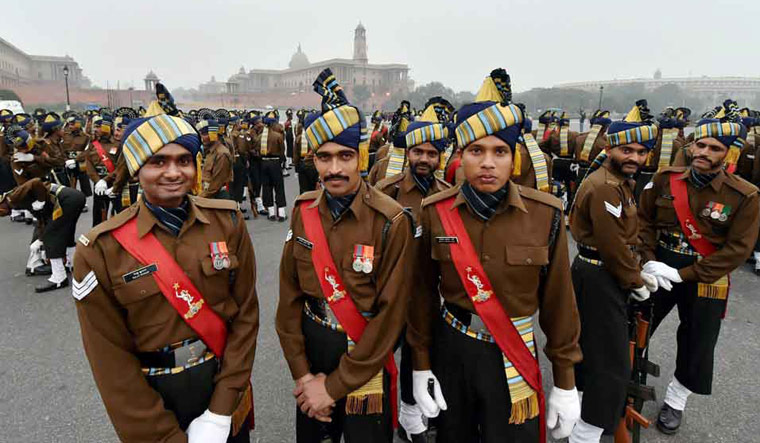Recently, I came across an article from noted journalist Barkha Dutt in which she tried to argue why “a soldier should not be a politician.” It is so appalling to read such pieces of writing from so-called educated people that one feels like ceasing to exist in society because one belong to a particular organisation that is apolitical in nature.
Dutt's article was written based on speculations about the meeting between the former Army chief general Dalbir Singh Suhag and BJP national president Amit Shah.
It's so cynical to know that there is a section of society that thinks the former Army man should not become a politician because he belongs to an organisation that is one of the pillars of society and an epitome of sacrifice, selfless service, obedience and various other things, which are not being listed here as the list is too long to be mentioned completely. Thus, the soldier is bound to remain so till his last breath. If that be the case, then there should be certain other ways and means to absorb these men of high prominence.
A military man, especially an officer, is trained in certain basic military traits, which equally hold good even in civil life. So, I believe a person trained on such core social issues and having practised them for at least 20-30 years cannot be a wrong choice to be inducted into politics or be a seasoned politician. I would like to understand this paradox that every citizen of the country finds the value system of soldiers and officers worth emulating in all fields but is not ready to give a ex-soldier the charge of the system where he can make a difference.
I would urge Dutt to open her eyes and look around in developed countries where the governments are utilising the services of retired military officers to the fullest. Mind you, a military man is not good only for defence affairs but he is a treasure trove of knowledge on varied subjects. Not giving the ex-soldier a chance to start a new innings suitable to his competence after hanging up the uniform is a waste of talent, resources and trained manpower. These officers are highly educated, socially obliged and full of ethics, unlike so many of our politicians who rule the roost because of the power of money.
Has Dutt ever thought why big MNCs are hiring these retired military officers? The requirement of competence cannot be higher in politics than MNCs where one does not need any worthwhile credentials. If their advice is worth its value in millions of rupees in MNCs, then I believe their actions in their active political life will be worth billions for the society whom they have served all their life. The induction of these gentlemen in political life will add some literary and ethical value in the system for which all of us are waiting since independence.
Lastly, I would like to understand why the compulsion of being the harbinger of all 'good, no evil' and 'Hercules' of customs, traditions, ethics, moral and value systems in society rests only on the soldier of the country, thus limiting his post-retirement options. Are the combatants jinxed for being associated with an organisation and abide by dos and don'ts even post-retirement, while people from all other domains can pick and choose the job of their choice? No one has ever written anything like this about any other services, be it administrative, police and judicial.
So, let's not forget the contribution made by these easily forgettable military men, come out of fears if any, develop the will to see some discipline in civil life and enjoy no red tapism and bureaucracy. Let's utilise this extremely efficient and effective resource available in the country lying underutilised due to its own inhibitions and the perceived compulsions posed by some to its maximum capability and give the country a chance to be governed in a better way.
Indu Tomar is a writer, advocate, social activist, poet and CEO of Srijanavari, an exclusive handicraft store.
Disclaimer: The views expressed in this article are solely those of the author and do not necessarily represent the views of the publication


